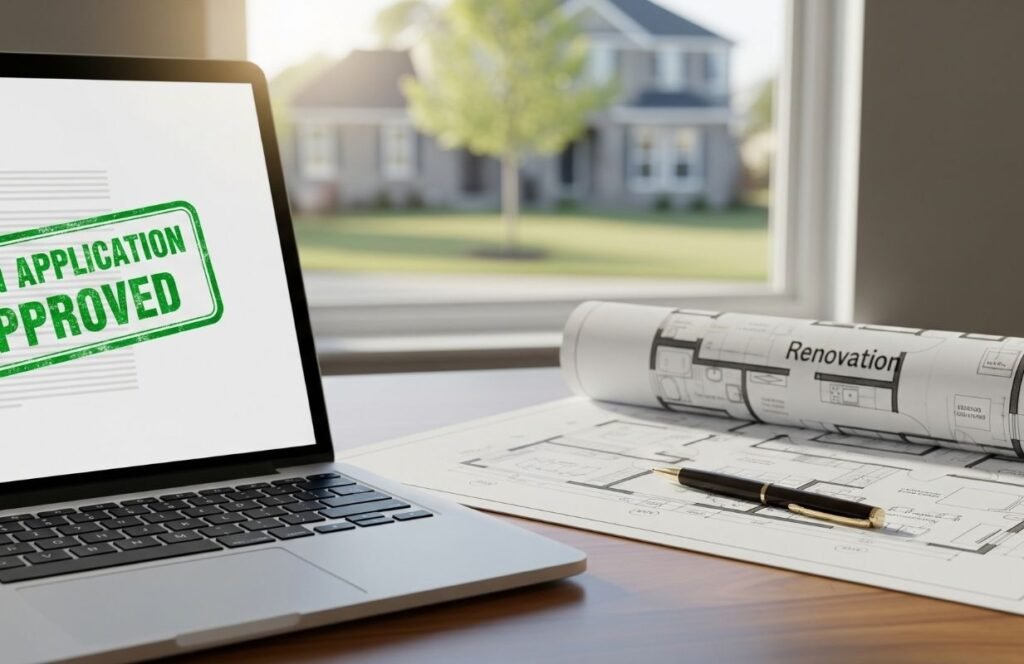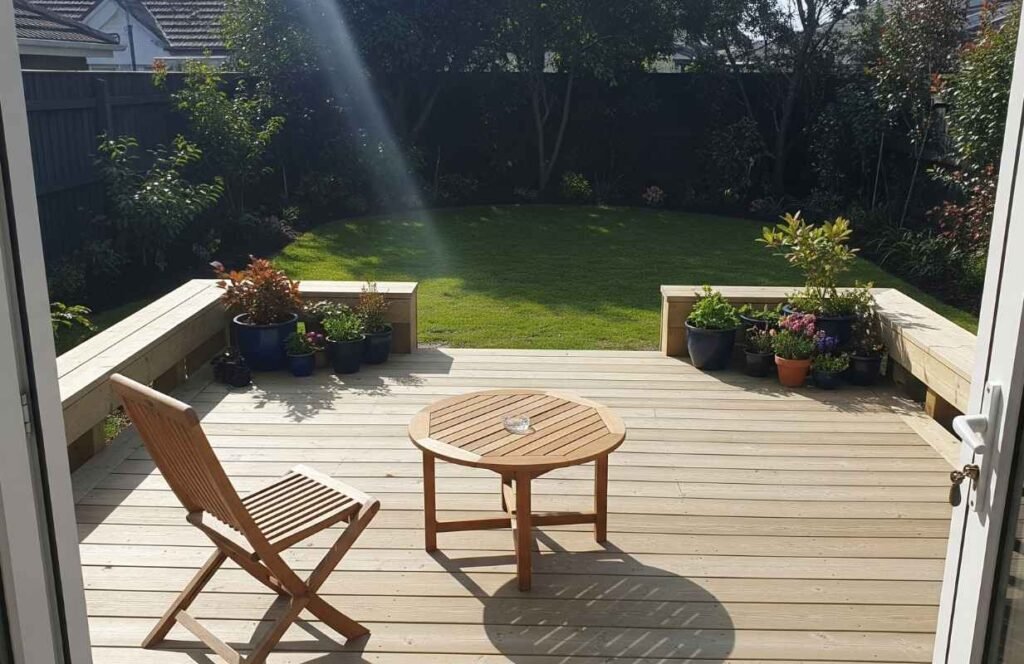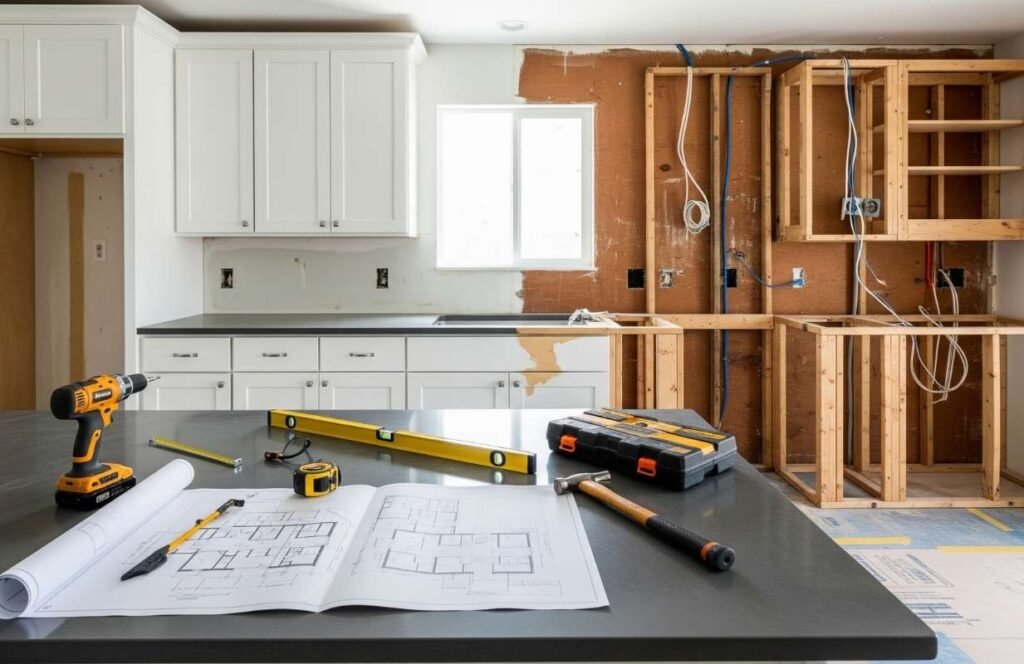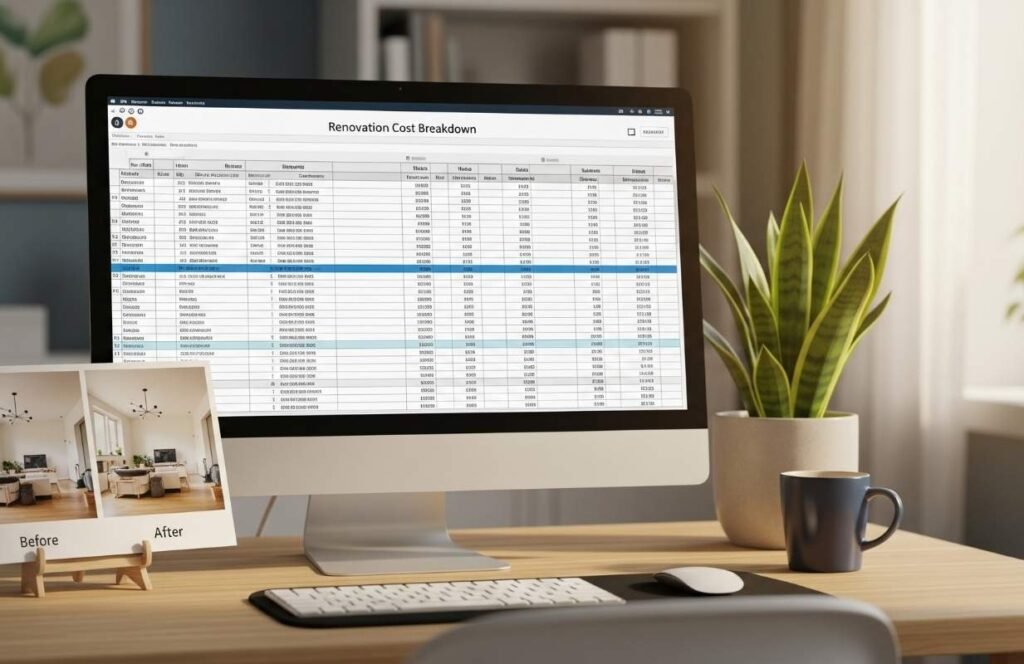An ICCU home improvement loan can be the helping hand you need when you’re ready to transform your living space. Whether you’re upgrading your kitchen, fixing a leaky roof, or adding a new room, this type of loan offers the funds to make it happen.
Many homeowners wonder, “How much would a $50,000 home improvement loan cost per month?” or even, “Is it worth getting a home improvement loan?” We’ll answer these questions and more so you know exactly what to expect.
By the end of this guide, you’ll have a clear understanding of how ICCU home improvement loans work, their benefits, and the steps to get started without feeling overwhelmed by financial jargon.
What Is an ICCU Home Improvement Loan?

An ICCU home improvement loan is a type of financing offered by Idaho Central Credit Union to help members pay for home renovations, repairs, or upgrades. Unlike a credit card with fluctuating interest rates, these loans often come with fixed terms and set monthly payments.
You borrow a specific amount whether that’s $5,000 for small repairs or $50,000 for a large renovation—and repay it over time. This makes budgeting easier, as you’ll always know how much your payment will be.
This loan is not limited to major remodels. It can cover projects like:
- Updating old flooring
- Replacing windows and doors
- Modernizing plumbing or electrical systems
- Landscaping or exterior improvements
Because ICCU is a credit union, members may enjoy competitive interest rates compared to some other financing options.
Why a Home Improvement Loan Can Be Valuable

A well-planned renovation can improve not only the look of your home but also its comfort, safety, and efficiency. Using an ICCU home improvement loan can make these upgrades more affordable upfront.
Here are some benefits:
Predictable Monthly Payments
With a fixed-rate loan, your payment stays the same each month. This consistency makes it easier to manage your budget without surprises.
Potential Increase in Home Value
Many home improvements—like kitchen remodels or bathroom updates—can boost your home’s market value.
Flexible Loan Amounts
Whether your project is big or small, you can borrow the amount that fits your needs, which answers the common question: “Is it worth getting a home improvement loan?” If the improvements make your home safer, more comfortable, and possibly more valuable, the answer is often yes.
No Need to Drain Your Savings
Instead of using emergency funds, you can finance the project and keep your savings intact for unexpected expenses.
How Much Would a $50,000 Home Improvement Loan Cost Per Month?
The exact monthly cost depends on your loan term, interest rate, and credit profile. For example:
If you borrowed $50,000 at a 7% interest rate for 10 years, your monthly payment could be around $580. Choose a shorter term, and the payment will be higher but you’ll pay less interest overall.
ICCU offers loan calculators so you can see your estimated payment before committing. This helps you plan your budget and avoid surprises.
Is It Difficult to Get a Home Improvement Loan?
Whether it’s “difficult” depends on your financial situation. ICCU will review factors such as:
- Your credit score
- Your income
- Your debt-to-income ratio
- Your overall credit history
For many members, getting approved is straightforward, especially if they have a history with ICCU. This is why preparation is key—knowing your numbers before applying can make the process smoother.
Step-by-Step Guide to Getting an ICCU Home Improvement Loan

Follow these clear steps to move from planning your renovation to having the funds ready in your account.
Step 1: Define Your Project and Budget
Decide exactly what you want to do and how much it will cost. Get quotes from contractors if necessary.
Step 2: Check Your Credit Score
A common question is, “What credit score is needed for a home improvement loan?” While ICCU doesn’t publicly post a strict cutoff, a higher score can improve your approval odds and may help you get a better interest rate.
Step 3: Calculate How Much You Need
Don’t just guess—list every expense, including materials, labor, and permit fees.
Step 4: Apply Through ICCU
You can often apply online or at a branch. Be ready to share financial documents, income proof, and project details.
Step 5: Wait for Approval
ICCU will review your application and may contact you for more information. Approval times can vary.
Step 6: Receive Funds and Start Your Project
Once approved, you’ll receive the loan amount and can begin your renovations.
Is It Worth Getting a Home Improvement Loan?
For many homeowners, yes. If the project improves your daily life, prevents bigger problems later, or raises your property value, it can be a smart move. However, it’s worth doing the math first—compare the cost of borrowing with the potential benefits.
For example, replacing an old roof might not be glamorous, but it can prevent expensive water damage. Similarly, remodeling a bathroom might make your home more enjoyable and appealing to future buyers.
Tips for Making the Most of Your ICCU Home Improvement Loan

A few smart strategies can help you get the best value from your loan and keep your project on track.
Prioritize High-Impact Projects
Focus on renovations that improve both functionality and value—like energy-efficient windows, updated kitchens, or roof repairs.
Avoid Over-Borrowing
Only borrow what you need. This keeps monthly payments manageable and interest costs lower.
Keep Receipts and Documentation
If you ever sell your home, detailed records of improvements can support your asking price.
Pay On Time
Consistent, on-time payments help maintain or improve your credit score.
What Credit Score Is Needed for a Home Improvement Loan?
While ICCU doesn’t list a specific number publicly, many lenders consider scores of 670 or higher as “good.” That said, lower scores may still qualify, though the interest rate could be higher.
Improving your score before applying—by paying down debts and making payments on time—can save you money in the long run.
Conclusion
An ICCU home improvement loan can be a smart, flexible way to fund renovations without draining your savings. By understanding your budget, knowing your credit score, and focusing on projects that bring real value, you can make informed decisions that benefit your home and your finances.
Whether you’re asking, “How much would a $50,000 home improvement loan cost per month?” or “Is it difficult to get a home improvement loan?”—the key is preparation. Plan your project, explore your loan options, and work with ICCU to turn your renovation dreams into reality.
FAQs
How much would a $50,000 home improvement loan cost per month?
It depends on the term and interest rate. At 7% for 10 years, it’s about $580 per month, but rates vary.
Is it difficult to get a home improvement loan from ICCU?
Not necessarily. Your approval depends on credit score, income, and debt-to-income ratio.
Is it worth getting a home improvement loan?
If it improves your home’s safety, comfort, or value, it can be worth the cost.
What credit score is needed for a home improvement loan?
ICCU doesn’t list a strict minimum, but a higher score generally improves approval odds.
Can I use a home improvement loan for small projects?
Yes. You can borrow amounts that fit the size and scope of your project.
Do ICCU home improvement loans have fixed rates?
Many do, which makes budgeting easier since your payment amount won’t change.






